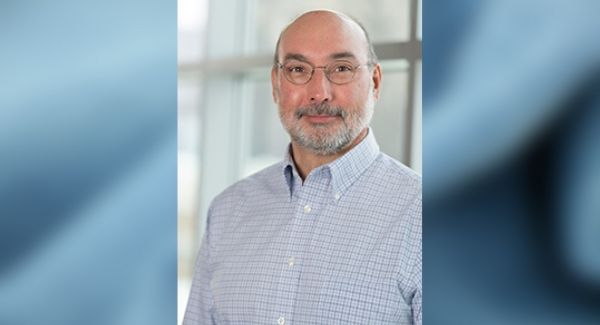The novel coronavirus (CoV), COVID-19, has taken the world by storm. Governments and leadership in many nations are urging individuals to distance themselves from one another and are putting stay-at-home orders into place to hopefully slow the spread of the virus.
Economies are declining — businesses, industries and nonprofit organizations worldwide have been affected; forced to furlough, reduce staff and move employees from an office environment to their homes where they can work remotely.
Researchers are desperately working to find a vaccine although it is believed the world is months away from such relief.
Meanwhile, individuals and families are staying close to home, only venturing out for necessities such as food and medicine.
Newman University alumnus Tony Schountz, Ph.D., associate professor at Colorado State University (CSU), has a close connection to the pandemic.
He has spent many years studying immune responses of bats to bat-borne human pathogenic viruses. He currently works in the Department of Microbiology, Immunology and Pathology for the College of Veterinary Medicine and Biomedical Sciences.
His first love wasn’t biological sciences, but rather sports and photojournalism. When his goal of becoming a Major League Baseball player didn’t look like it was going to come to fruition, he began looking into other options.
Meeting Surendra Singh, Ph.D., professor of biology, had a tremendous impact on his future career choice, particularly in the area of research, Schountz said. He said Singh inspired him with his infectious enthusiasm.
Although he remained active as a photographer for the Vantage during his years at Newman, Schountz started his journey into science. He ended up with a Bachelor of Science in biology, crediting Newman’s strong reputation for its science program and smaller class sizes as a reason for his interest and success.
“I didn’t realize it at the time,” said Schountz, “but majoring in biology at Newman gave me field experience that paid off later in my career when we were conducting virus discovery and surveillance in wild rodents and bats. Few of my colleagues had such experience because their undergraduate degrees were in microbiology, physiology or biochemistry, among others.”
He added that he was initially interested in genetics but changed his career direction after taking an immunology course. In his current role at CSU, he is teaching an undergraduate virology course and a graduate course on immunity to infectious diseases.
After earning his bachelor’s degree at Newman in 1986, Schountz went on to receive a Master of Science in virology from Emporia State University in ‘89 and Doctor of Philosophy, studying Immunology and Biochemistry, from Kansas State University in ‘97.
He is keeping busy with his teaching and also using his expertise to assist in the work that is happening to learn more about COVID-19.
Schountz is aiding in testing a number of drug candidates for antiviral activities, therapeutic antibodies and, pending funding from the National Institutes of Health, a novel vaccine strategy.
According to John Hopkins Bloomberg School of Public Health Center for Health Security, “the emergence of human coronaviruses, including MERS-CoV and SARS-CoV, is thought to be driven by the spillover of bat-adapted CoVs into an intermediate host.”
Schountz said his interest lies in understanding the relationship of bats and the virus.
“We have a colony of fruit bats and, as expected, they do not get disease when infected with the virus. We are examining their responses to the virus using both conventional virological and immunological methods, as well as new technologies that can examine the entire genetic response to infection.”
Schountz has performed many studies and lab research around MERS-CoV, which is part of the large family of coronaviruses and is related to COVID-19.
“The most important part of the MERS-CoV project that helped us was that it gave us an opportunity to get familiar with a highly pathogenic coronavirus in the laboratory as well as in bats. That work allowed us to segue with very little effort once we received SARS-CoV-2.”
And now that research is helping with a multitude of studies done to find a vaccine for COVID-19.
“I am interested in learning how bats can serve as reservoir hosts of really meaningful human pathogens, such as Ebola virus and SARS-CoV-2, the virus that causes COVID-19, without having disease.”
He added that a bat’s immune system is unique compared to other mammals, including humans.
“I believe these unusual features have shaped their viruses to be more pathogenic in humans.”
While he believes a vaccine is more than a year away due to coronaviruses being famously difficult when it comes to finding antidotes, he said everything that is said about social distancing and washing hands often and generously will be the best way to slow down the pandemic.
“I hope everyone practices social distancing and good hand washing in the coming months. It’s really the only way we can mitigate a very high number of deaths in the United States and it will likely save tens or hundreds of thousands of lives. We have no vaccine and we have no drugs.”
He added, “There is a substantial effort by hundreds of labs across the world to screen drug candidates, and if one is found quickly, we can get the outbreak under control. But such a drug may not be found in time, thus the importance of social distancing and handwashing.”

